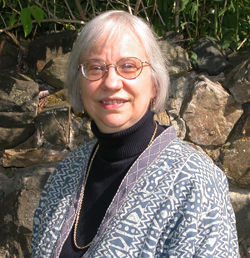With a lifelong career devoted to American and women's literature, Phyllis Cole, professor of English, women's studies and American studies at Penn State Brandywine, will share her expertise as the keynote speaker of an international conference in Florence, Italy.
American women authors from the nineteenth century who engaged with Europe as readers and travelers will be the theme of "Transatlantic Women II: Nineteenth-Century Women Writers Abroad," an author society conference dedicated to this theme that takes place June 6 through 9, 2013.
The conference is sponsored by the Margaret Fuller Society, the Catharine Maria Sedgwick Society and the Harriet Beecher Stowe Society.
Eighty participants from eight countries, from the United States and several European nations to Israel and Japan, are on the program's agenda, and range from graduate students in the discipline to professors of international stature. "Scholars interested in the relationships between American women authors and their dialogue with the rest of the world will be attending," Cole said.
Cole, a resident of Lansdowne, will present an address titled "Fuller, Browning and the Networks of Transatlantic Feminism." She confessed that serving as keynote speaker is "a great honor but a daunting prospect." Not only will scholars from all over the world be present, but also "eminent American scholars whom I would be interested in listening to rather than addressing."
The keynote "is actually near the end of the conference," she said. "So it's up to me to draw the threads together."
Nonetheless, she is delighted to be a part of the second in a pair of conferences devoted to this specialty. Transatlantic Women I took place in Oxford, England and was so rich in content that a book was developed out of the presentations. She hopes the same will happen following this conference.
"Transatlanticism is an important innovation in literary studies," Cole said. "These women authors were writing and interpreting what was happening across Europe at a time of immense change in both politics and literature. Women pushed the boundaries in a way that was visionary and utopian for what women could become."
Now putting the finishing touches on her presentation, Cole is also anticipating the scope of the event: two-and-a-half days of panels and papers in a city known for its history, literature and art. As a first-time visitor to Florence, she is relishing the thought of seeing the sights. One landmark of particular interest is the former home of Elizabeth Barrett Browning, where the British author and American Margaret Fuller had conversations over a period of seven months in 1849-50.
"It's a wonderful group of presenters at the conference," she said, "and the location couldn't be better."
